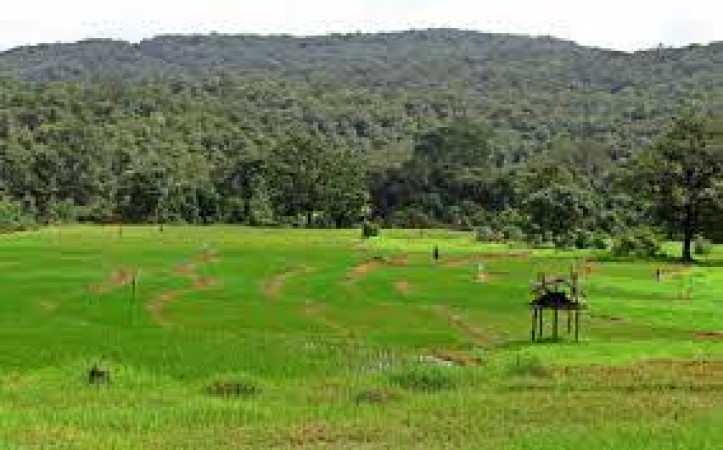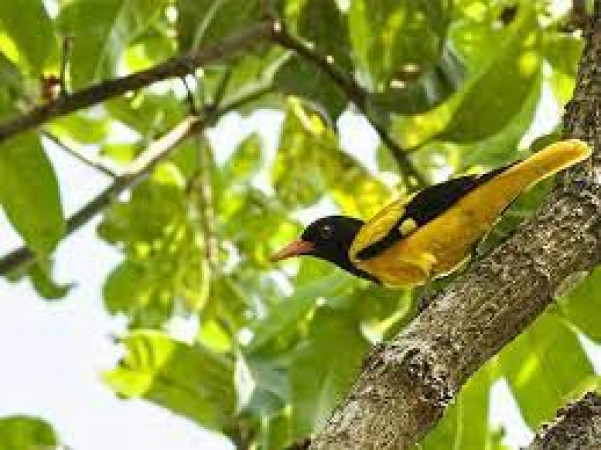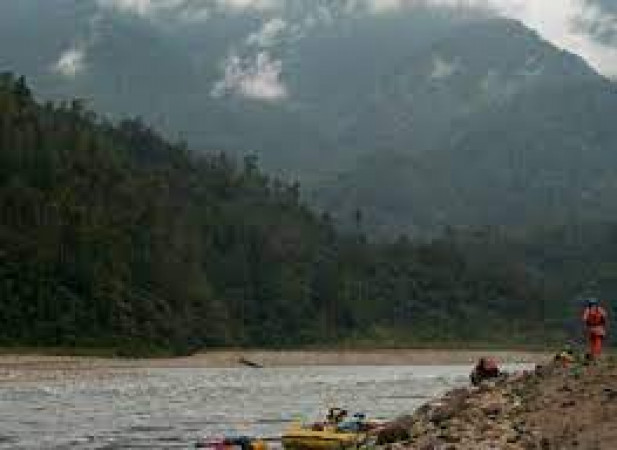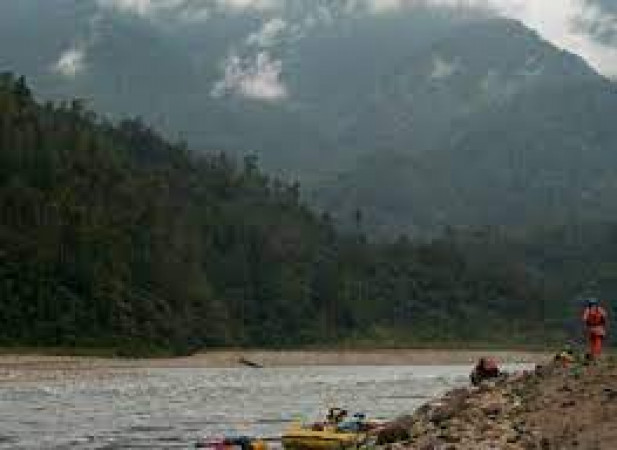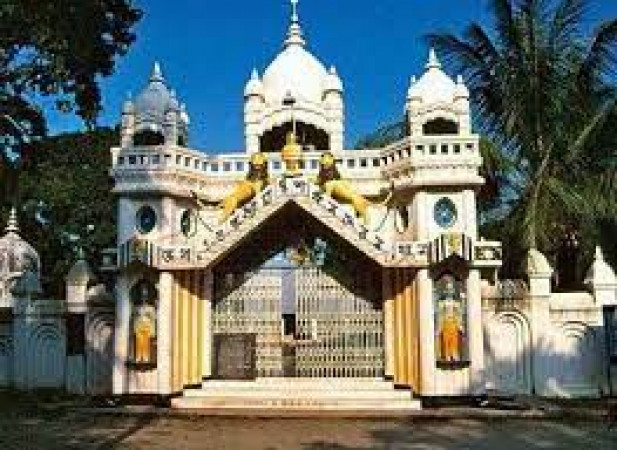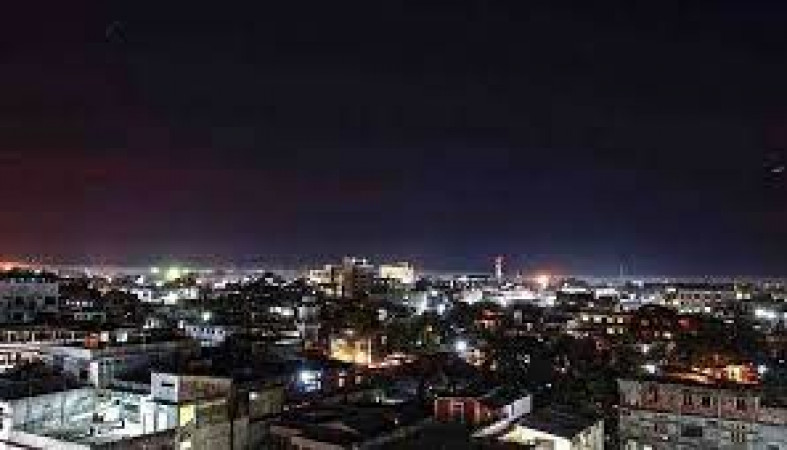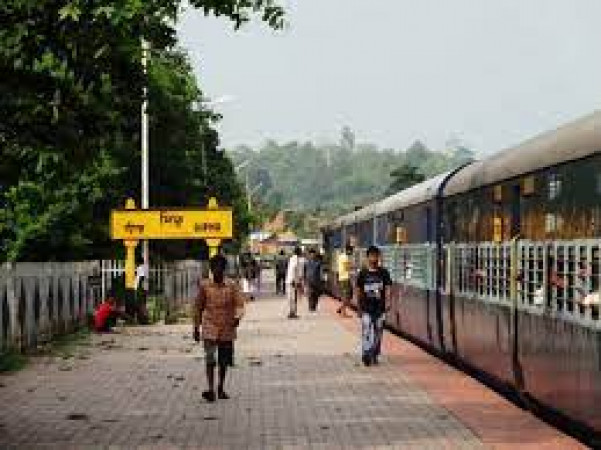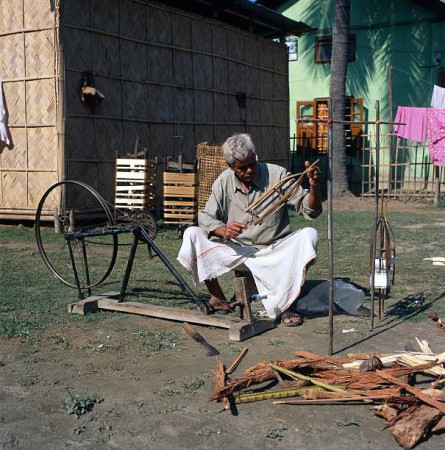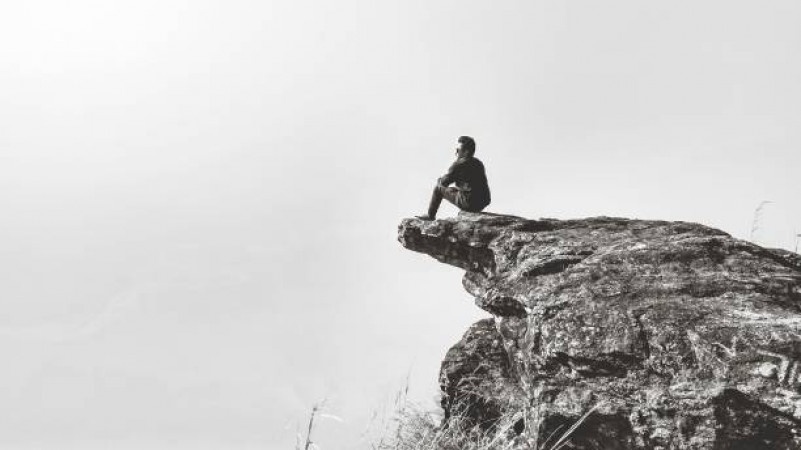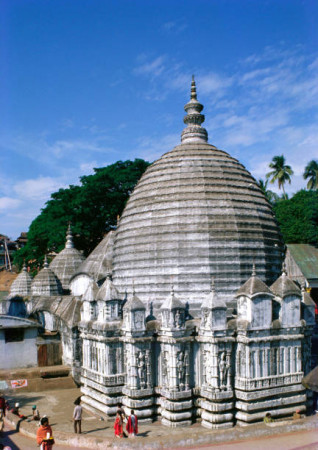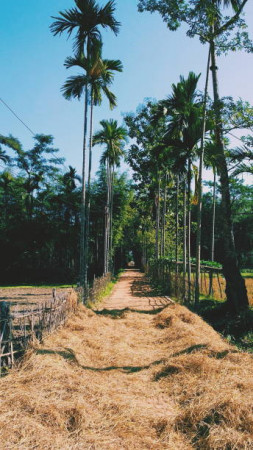Dhemaji Travel Guide
Dhemaji, located in the northeastern state of Assam, India, is a charming destination known for its scenic beauty and cultural heritage. This small town is nestled amidst lush greenery and is dotted with ancient temples and historical sites. Dhemaji is famous for its rich history, diverse geography, and unique cultural traditions that have been preserved for centuries.Top Attractions in Dhemaji
- Majuli Island - The largest river island in the world
- Shivadol - An ancient temple dedicated to Lord Shiva
- Gerukamukh - A scenic spot on the Brahmaputra River
- Dibru-Saikhowa National Park - Home to diverse wildlife and bird species
- Simen Chapori Wildlife Sanctuary - Ideal for bird watching and nature walks
Dhemaji is Famous for
Natural beauty and cultural heritage.Top Attractions in Dhemaji
- Explore Majuli Island's unique culture and traditions
- Visit ancient temples like Shivadol for spiritual experiences
- Experience the tranquility of Gerukamukh on the Brahmaputra River
- Discover diverse wildlife at Dibru-Saikhowa National Park
- Enjoy bird watching at Simen Chapori Wildlife Sanctuary
What's Great about Travelling to Dhemaji?
- Perfect for nature lovers seeking serenity
- Great for history buffs interested in ancient temples
- Ideal for bird watchers and wildlife enthusiasts
What's Not So Great about Travelling to Dhemaji?
- Limited luxury accommodation options
- Challenging transportation infrastructure
- Not ideal for travelers seeking a bustling city experience
Travel Tips for Dhemaji
- Obtain necessary permits for visiting wildlife sanctuaries
- Book accommodations in advance due to limited options
- Respect local customs and traditions
Important Dhemaji trip information
- Ideal Duration: 3-4 days to explore the main attractions
- Best Time to Visit: October to March for pleasant weather
- Nearby Airports and Railway Stations: The nearest airport is in Jorhat, and the nearest railway station is in Dibrugarh
Top 6 Places to visit in Dhemaji
FAQ's on Dhemaji
Q1: What is the best time to visit Dhemaji?
The best time to visit Dhemaji is during the winter months from November to February when the weather is pleasant and ideal for exploring the region. Avoid the monsoon season from June to September, as heavy rainfall can disrupt travel plans. Dhemaji also hosts the Ali-Aye-Ligang festival in February, showcasing the rich culture of the region.
Q2: Do I need a visa to travel to Dhemaji?
Visitors to Dhemaji need a valid Indian visa unless they are from a visa-exempt country. Some nationalities may be eligible for e-Visa facilities. It's essential to check with the Indian embassy or consulate for the most up-to-date visa requirements before traveling.
Q3: What are the must-visit attractions in Dhemaji?
Dhemaji offers a blend of natural beauty and cultural heritage. Must-visit attractions include the Gerukamukh Eco Village, Malinithan Temple, Bhairabkunda, and the Dibru-Saikhowa National Park, known for its biodiversity and wildlife.
Q4: Is Dhemaji a safe place to travel?
Dhemaji is generally safe for travelers, but like any destination, it's advisable to take standard safety precautions. Avoid isolated areas at night and be cautious of your belongings in crowded places. Stay informed about local news and follow any travel advisories.
Q5: What is the local currency in Dhemaji and can I use credit cards?
The local currency in Dhemaji is the Indian Rupee (INR). While credit cards are accepted in larger establishments, it's advisable to carry cash for smaller vendors and local markets. ATMs are available in urban areas for convenient cash withdrawals.
Q6: What is the local cuisine like in Dhemaji?
Dhemaji's cuisine is influenced by Assamese flavors, with dishes like Masor Tenga (sour fish curry), Aloo Pitika (mashed potatoes), and Khar (alkaline preparation) being popular. Vegetarians can enjoy dishes like Kharoli and Ou Khatta, showcasing the region's unique culinary traditions.
Q7: What transportation options are available in Dhemaji?
Transportation options in Dhemaji include buses, auto-rickshaws, and taxis for local travel. Renting a car or hiring a driver is recommended for exploring the region comfortably. Public buses are available for inter-city travel, while private cabs offer more flexibility.
Q8: Are there any cultural norms or etiquette I should be aware of when visiting Dhemaji?
When visiting Dhemaji, it's important to respect local customs and traditions. Modest attire is appreciated when visiting religious sites, and removing footwear before entering temples is customary. Greeting locals with a "Namaskar" (hello) is a sign of respect.
Q9: I am a travel agent. How can I buy travel leads of Dhemaji?
Register yourself as a travel agent at agents.tripclap.com and then you can buy travel leads to Dhemaji once your account is approved. For more details contact our support team at +91-8069186564 or support@tripclap.com
